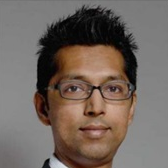Digital Twinning of Energy and Thermal Systems for Urban Sustainability
A special issue of Sustainability (ISSN 2071-1050). This special issue belongs to the section "Sustainable Urban and Rural Development".
Deadline for manuscript submissions: 30 May 2024 | Viewed by 1288
Special Issue Editors
Interests: applied research work in relation to the built environment; the modelling of energy system using OPAL RT system for microgrid setups; microgrid digital twin development for effective energy management and deployment; the smart distributed ess management application for fire hazard mitigation under hot–humid climatic conditions with an AI degradation study for lithium–ion batteries; the modelling of urban farming modular structures
Special Issues, Collections and Topics in MDPI journals
Interests: building energy management; combined heat and power (thermal components); optimizing HVAC system; desalination; HVAC system for indoor farming; waste heat recovery from power plants; global warming and GHGs emissions; passive cooling system; hybrid cooling; Artificial Intelligence algorithm for energy efficiency and SMART control for the built environment
Special Issues, Collections and Topics in MDPI journals
Interests: smart grid and renewable energy; deep learning and its application to smart grids; modelling and control of battery energy storage system; health prognosis and degradation prediction in smart grids; power quality assessment and improvement; power electronics control and application; wireless charging technology and V2G development; modern motor drive; electric power for internet of things (IOT); digital twin
Special Issue Information
Dear Colleagues,
Rapid urbanization places a greater strain on the existing infrastructure, which requires better planning and execution to meet such demands. As part of decarbonization initiatives, transport systems are being electrified, and buildings are becoming more grid-interactive.
This Special Issue on the Digital Twinning of Energy and Thermal Systems for Urban Sustainability aims to use digital modelling of electrical, mechanical and thermal systems/assets in buildings, which contribute to cooling/ heating loads, as well as examine how the modelled renewable energy systems can be integrated with the grid to meet such load demands. Furthermore, it examines how energy management and building management systems can be integrated into urban settings to efficiently control, predict, and forecast load demands based on accurate data collection of environmental weather conditions, human occupancy level and types of activities in the building envelopes. This is crucial for sustainable living in an urban context. Embracing digital twin technology with engineering data at its core will support engineers/asset managers in obtaining better control over their assets and better end-to-end insights.
By using control algorithms and machine learning to analyze historical load demand trends, the action taken in response to these recommendations will ensure sustainable performance improvements in buildings operating in the urban context.
Original research articles and reviews are welcome in this Special Issue. Research areas may include (but are not limited to) the following:
(i) The implementation of digital twin solutions to enhance buildings performance in built environments;
(ii) Modelling of renewable energy sources to meet the load demands of buildings;
(iii) Development of twin models of existing infrastructure and assets for predictive and preventive maintenance;
(iv) Initiative of digital twin residential, industrial or campus models for the optimization of resource generation to meet load demands;
(v) Use of Artificial Intelligence algorithm for energy efficiency and SMART control for the built environments;
(vi) Development of physics and AI hybrid models for built environments;
(vii) Prognosis and degradation prediction of grid and renewable assets.
We look forward to receiving your contributions.
Dr. Chew Beng Soh
Dr. Aung Myat
Dr. Wei Feng
Guest Editors
Manuscript Submission Information
Manuscripts should be submitted online at www.mdpi.com by registering and logging in to this website. Once you are registered, click here to go to the submission form. Manuscripts can be submitted until the deadline. All submissions that pass pre-check are peer-reviewed. Accepted papers will be published continuously in the journal (as soon as accepted) and will be listed together on the special issue website. Research articles, review articles as well as short communications are invited. For planned papers, a title and short abstract (about 100 words) can be sent to the Editorial Office for announcement on this website.
Submitted manuscripts should not have been published previously, nor be under consideration for publication elsewhere (except conference proceedings papers). All manuscripts are thoroughly refereed through a single-blind peer-review process. A guide for authors and other relevant information for submission of manuscripts is available on the Instructions for Authors page. Sustainability is an international peer-reviewed open access semimonthly journal published by MDPI.
Please visit the Instructions for Authors page before submitting a manuscript. The Article Processing Charge (APC) for publication in this open access journal is 2400 CHF (Swiss Francs). Submitted papers should be well formatted and use good English. Authors may use MDPI's English editing service prior to publication or during author revisions.
Keywords
- digital twin
- sustainability
- AI/ML and hybrid models
- renewable energy systems
- grid-interactive buildings
- IoT
- digital transformation







